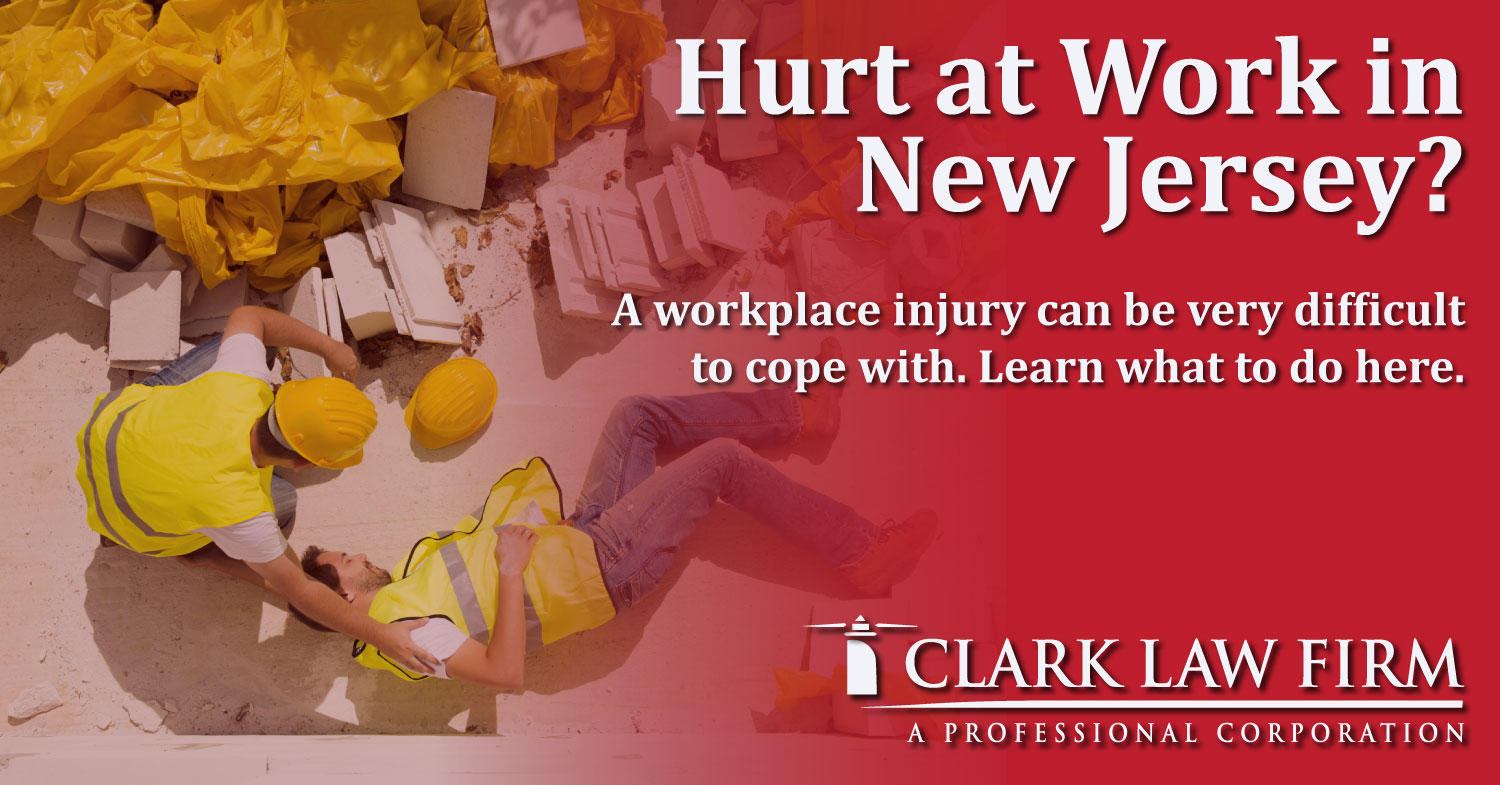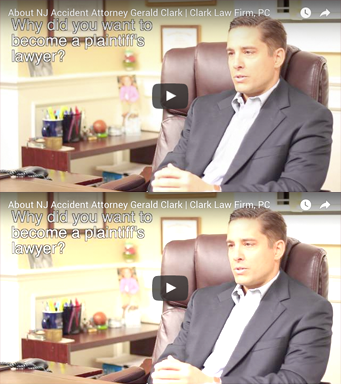New Jersey Workers Compensation and Job Injury Lawyers
Top New Jersey Lawyers for Getting Hurt at Work
A workplace injury can be very difficult to cope with. The workers compensation insurance companies that are supposed to provide vital benefits such as wage replacement and medical treatment often resist their responsibilities and look for reasons to deny claims and not pay. Our New Jersey accident law firm represents the victims and families of workplace injuries and assist them in taking the proper steps to recover workers compensation benefits from the insurance companies.
The New Jersey Workers compensation attorneys we work with will immediately begin an investigation into your case to collect the evidence necessary to prove your case. From your initial consultation through the final resolution of your case, our attorneys will seek to obtain successful results in your job accident case.
Workers compensation is a statutory system which provides certain types of benefits to an employee who suffers an accident, traumatic injury, death or an occupational disease arising out of and during the course of employment. Workers compensation laws are generally designed to protect both the employee and the employer. The employer becomes immune from a regular common law negligence lawsuit by the employee through the exclusive remedy provisions of the Workers Compensation Act. In exchange the employee is supposed to be guaranteed certain and immediate lost wage and medical treatment benefits.
The Division of Workers compensation is responsible for the administration of the New Jersey Workers compensation Law, N.J.S.A. 34:15 et seq. The Division and its judicial and administrative staff also handles disputes and proceedings arising under these laws. Workers compensation judges have the authority to make awards, require medical exams and treatment for injured employees, approve and set attorneys’ fees and to assess penalties when necessary.
New Jersey’s Workers compensation laws basically provides for employers to provide injured employees with the following benefits when they are appropriate:
- Necessary medical treatment for the work-related injuries until the employee can return to work or will no longer benefit from the medical treatment. In Workers compensation, the employer has the right to pick the medical provider who will examine and treat the injured employee.
- Temporary Disability benefits are awarded when an employee is unable to perform his/her job. These benefits entitle the employee to benefits at a rate of 70% of his/her average gross weekly wages [not to be less than the minimum of 20% of the State Average Weekly Wage (SAWW) or exceed the maximum rate of 75% of same]. These benefits are essentially income-continuation payments and generally continue until the employee returns back to work or has reached maximum medical improvement.
- Permanent Disability benefits which can be either permanent partial disability or permanent total disability depending upon the nature and extent of the injury sustained by the employee. This benefit is commonplace in serious physical injuries and must be demonstrated by objective medical evidence. Generally, the medical examination necessary to determine the permanent disability is not conducted until 6 months (26 weeks) after the employee’s authorized medical treatment ends or 6 months from the date the employee returns to work; whichever date is earlier.
A dispute arising in Workers Compensation is not like an ordinary lawsuit. In Workers compensation, an employee is essentially making a claim for those benefits permitted by law. A short example may be helpful here.
Let us assume that John Smith is a factory worker, who gets hurt at the job while working for ACME, Corporation. The employee, John Smith, does not sue his employer, ACME Corp., under Workers compensation law. Instead, he obtains an attorney to file an “Employee Claim Petition” with the Division of Workers compensation.
First, John is entitled to receive medical care and treatment, which will be paid for by his employer. Second, if John Smith, should be disabled as a result of the work injury and unable to work a period of time [generally at least seven (7) days], then his employer will provide Temporary Disability, which is basically the payment of a percentage of his wages/salary until he can return to work. Third, if the nature of John’s physical injury is such that it is in fact a permanent injury, the employer may have to provide a payment for the permanent disability.
ACME, Corp., as a responsible employer in this hypothetical scenario should have purchased the necessary workers compensation insurance policy to protect all its employees from workplace injuries. This simple example helps to illustrate the three basic benefits of Workers compensation.
Before the Workers compensation system existed, employees hurt on the job had to sue their employers in court asserting negligence theories to receive compensation, but now the law provides a more immediate remedy for the injured worker. Today, the injured worker should normally expect to receive prompt medical care and related benefits from his employer, and in exchange the employer can no longer be sued by the employee in court.
Sometimes, a worker is injured at the workplace, and the employer promptly provides the necessary benefits required by law. Other times an injured worker may need the assistance and representation of a skilled Workers compensation attorney to help him obtain these rights. In the state’s system, an attorney commences this with the filing of a “Claim Petition” with the Division of Workers compensation which starts the case. The job of the Workers compensation lawyer is basically to ensure that the injured employee receives all the necessary benefits from his employer permitted by law.
The facts and circumstances of each workplace accident are very different. The resulting physical injuries also vary as do the responses by the employer. Some employers may act very promptly, and others may delay needlessly. Some employers may not have obtained the necessary insurance to protect employees from such injuries, which may require the injured employee to seek compensation via the state’s Uninsured Employer’s Fund. Sometimes the employer may take the defensive position, that the employee was not injured at work or that he caused the injury himself by intoxication or some other action.
If an injured employee is not receiving timely medical treatment for a workplace injury, he should consult with an attorney. Similarly, if the nature of the injury is such that there is significant time lost from work or a permanent physical injury, an attorney should be consulted. In certain scenarios, there may be a separate but related case against a third party, which may result in the filing of a lawsuit against this third party.
You may be asking “can you sue your job for getting hurt?” The short answer is you can bring a workers compensation claim to recover some lost wages, medical treatment and a permanency award. Or you may be asking “should I get a lawyer if I get hurt at work?” The short answer to this is yes. So then the next question may be, who are the best workers comp lawyers in NJ? Or who are the top workers comp attorneys?
Our attorneys are experienced in handling workplace injuries. We can meet with you at your home, our office or on Zoom video. We can answer all your questions, with no obligation. You also pay no fee unless we recover money for you. Contact us today.


